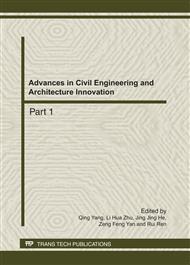p.3410
p.3414
p.3418
p.3423
p.3427
p.3431
p.3435
p.3440
p.3447
A Study on the Innovation of Urban Planning Paradigm Based on Low-Carbon Concept
Abstract:
This article based on the introduction of low-carbon concept and reflection on the traditional urban planning program, pointed out that should contribute to the traditional urban planning paradigm shift to low-carbon urban planning paradigm and described on the innovation path of paradigm considering planning connotation, participants and formula, with a view to provide planning theory and technical support for cities which practice low-carbon development path.
Info:
Periodical:
Pages:
3427-3430
Citation:
Online since:
October 2011
Authors:
Keywords:
Price:
Сopyright:
© 2012 Trans Tech Publications Ltd. All Rights Reserved
Share:
Citation:


